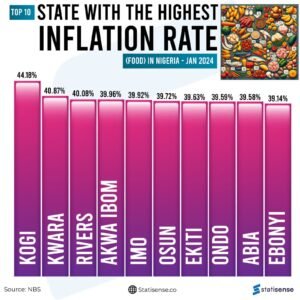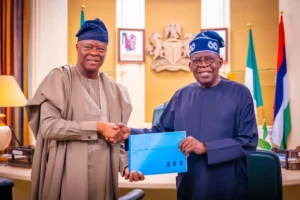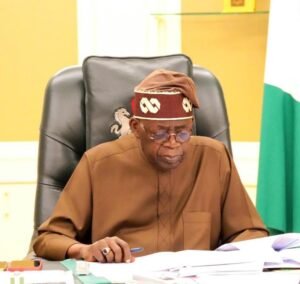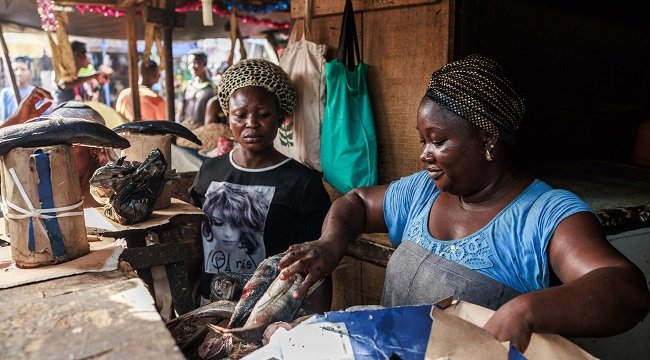The World Bank’s report predicting that Nigeria will sink deeper into poverty by 2027 has continued to dominate public discourse. In this special report, Korede Abdullah, Africa Health Report’s Southwest correspondent, outlines what the Tinubu administration must do to reverse the trend.
A Chilling Forecast
In a chilling forecast that should jolt every policymaker awake, the World Bank has projected that Nigeria’s poverty rate will jump by a staggering 3.6 percentage points by 2027.

This grim prediction, unveiled in its freshly released Africa’s Pulse 2025 report, underscores a looming socioeconomic catastrophe — one that threatens to drag millions more into extreme destitution unless urgent, radical action is taken.
A Shaky Foundation: Economic Gains Not Enough
Despite a flicker of hope with slight improvements in Nigeria’s non-oil sectors during the last quarter of 2024, the World Bank warns that the country’s deep-rooted structural weaknesses—particularly its dependence on natural resources and chronic national fragility—are poised to erode any fragile gains.
“Nigeria’s economy is like a house built on sand,” says Dr. Oluwatosin Yusuf, a development economist who spoke with Africa Health Report (AHR) on the phone.

The economist added the government should re-examine its approach in order to reverse the ugly trend. “Unless the foundation changes, the collapse is only a matter of time.” he said.
Poverty Deepens: The Stark Reality
The statistics are terrifying. More than 106 million Nigerians now live in extreme poverty, surviving on less than $2.15 a day. This means Nigeria accounts for a shocking 19% of Sub-Saharan Africa’s extremely poor and a staggering 15% of the world’s poorest people.
“This is no longer just an economic issue; it is a humanitarian crisis,” noted Dr. Idowu Oluwafemi Amos, a sociologist and senior lecturer at the Federal University, Lokoja.
A Tale of Two Africas: Resource Curse vs. Resilience
The World Bank report paints a stark picture, contrasting Nigeria’s trajectory with that of countries like Rwanda and Kenya, which have managed to diversify their economies, invest heavily in human capital, and strengthen their social systems despite having fewer natural resources.
While Rwanda and Kenya are cutting poverty rates steadily—through innovations in agriculture, digital technology, and infrastructure development—Nigeria, along with resource-rich but conflict-ridden nations like the Democratic Republic of Congo, is sinking deeper into economic stagnation and social instability.
Experts highlight that Nigeria’s overreliance on oil revenue, endemic corruption, and weak institutions have left it vulnerable to global commodity price shocks and internal mismanagement, exacerbating poverty and inequality.
The Multidimensional Poverty Trap
Adding to this grim picture, Nigeria’s National Bureau of Statistics (NBS) reports that 63% of Nigerians—over 133 million people—are “multidimensionally poor,” meaning they suffer deprivations not just in income but also in critical areas such as education, healthcare, housing, nutrition, and sanitation.

“It’s poverty in 3D: income, access, and opportunity,” explains Dr. Oluwatosin. He adds that many Nigerians live in conditions where even the minimum thresholds for living a dignified life—like having clean water or a safe learning environment—are not met.
In rural communities, for instance, children walk miles to attend dilapidated schools with no textbooks or trained teachers, while clinics often lack basic medicines. This deep, structural poverty threatens to lock generations into cycles of hopelessness unless urgent interventions are made.
What the World Bank Prescribes: A New Social Contract
The World Bank is calling for an urgent economic and governance reset: better fiscal policies, transparent management of public funds, stronger anti-corruption measures, and a revitalized social contract between the Nigerian government and its people.
“Trust is the currency of governance,” emphasized Dr. Mahmoud Bello, a former World Bank adviser. “Without restoring trust, even the best policies will fail.”
Bello notes that past reform efforts in Nigeria often crumbled because citizens perceived them as self-serving initiatives for elites rather than genuine efforts to uplift the broader population.
The World Bank also recommends robust investment in sectors like education, healthcare, renewable energy, and smallholder agriculture, arguing that without social safety nets and opportunities for the youth, Nigeria risks becoming a “pressure cooker” of unrest.
Tinubu’s Defining Test
With the clock ticking, all eyes are now on President Bola Tinubu, Finance Minister Wale Edun, and Budget and Economic Planning Minister Abubakar Bagudu. Analysts stress that they must not only articulate a clear vision but also implement a national poverty reduction strategy that is well-monitored, data-driven, and laser-focused on inclusive economic growth.

The proposed approach must prioritize mass job creation through investment in labor-intensive sectors, empowerment of small and medium-sized enterprises (SMEs), expansion of basic services in underserved areas, and the adoption of technology to improve service delivery.
“This is the defining moment of Tinubu’s presidency,” warns policy analyst Maryam Sadiq. “He must act decisively — or Nigeria risks tipping into chaos.”
The administration’s success or failure will likely determine Nigeria’s economic trajectory for decades to come, influencing not only domestic stability but also West Africa’s broader security landscape.
Development Diaries’ Clarion Call
Civil society organizations like Revolution Now are also sounding the alarm, intensifying their advocacy for immediate and people-centered reforms.
They urge the Tinubu administration to design and implement a poverty reduction strategy that is transparent, inclusive, and sustainably funded by curbing wasteful government spending and mobilizing domestic resources effectively.
“The people cannot eat promises,” says Omoyele Sowore, founder of the organization. “We demand action, not rhetoric.” Sowore emphasizes that any credible poverty alleviation program must involve meaningful consultation with affected communities, rigorous monitoring frameworks, and a commitment to measurable results.
Grassroots organizations warn that continued government inertia could erode already fragile public trust and ignite wider social unrest if concrete improvements do not materialize soon.



